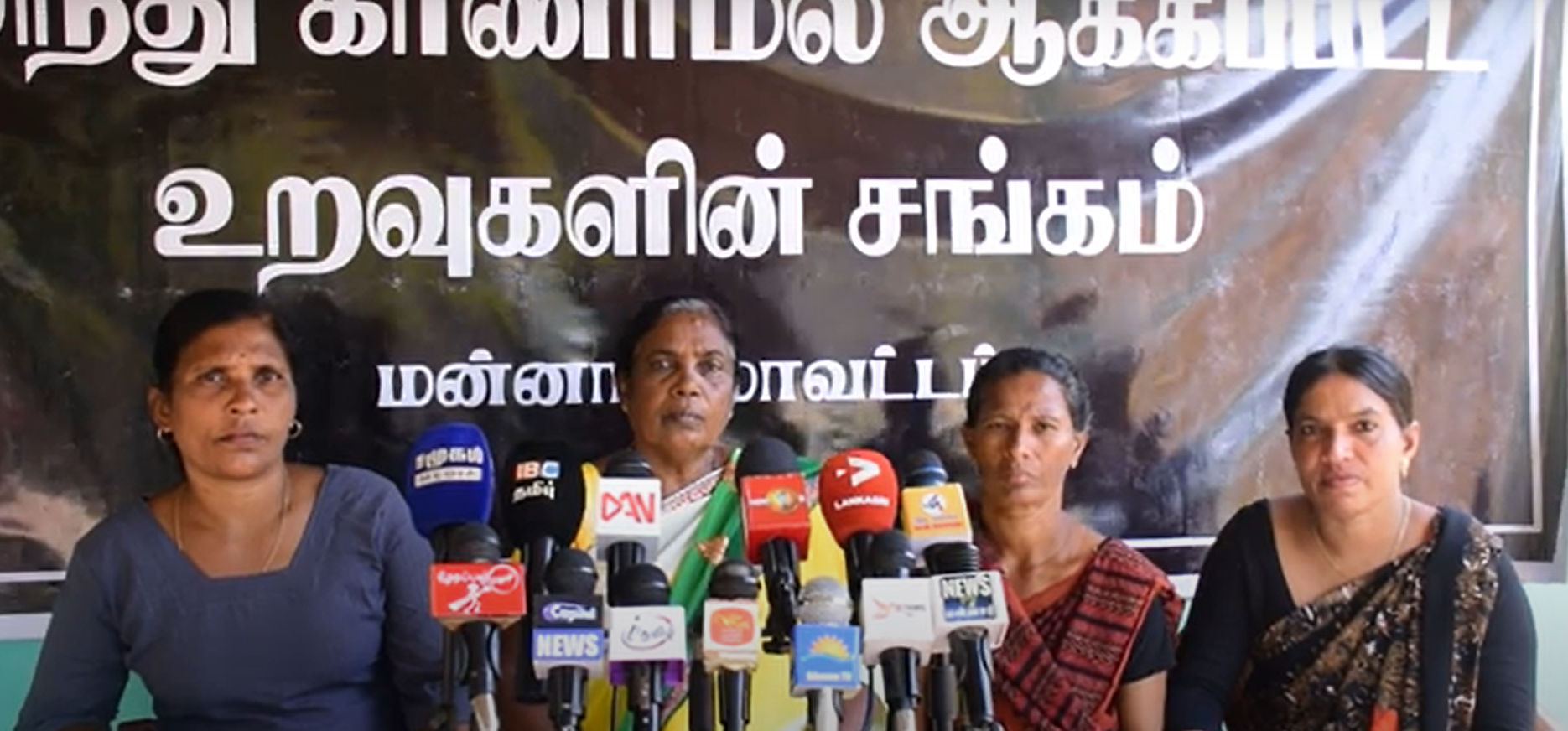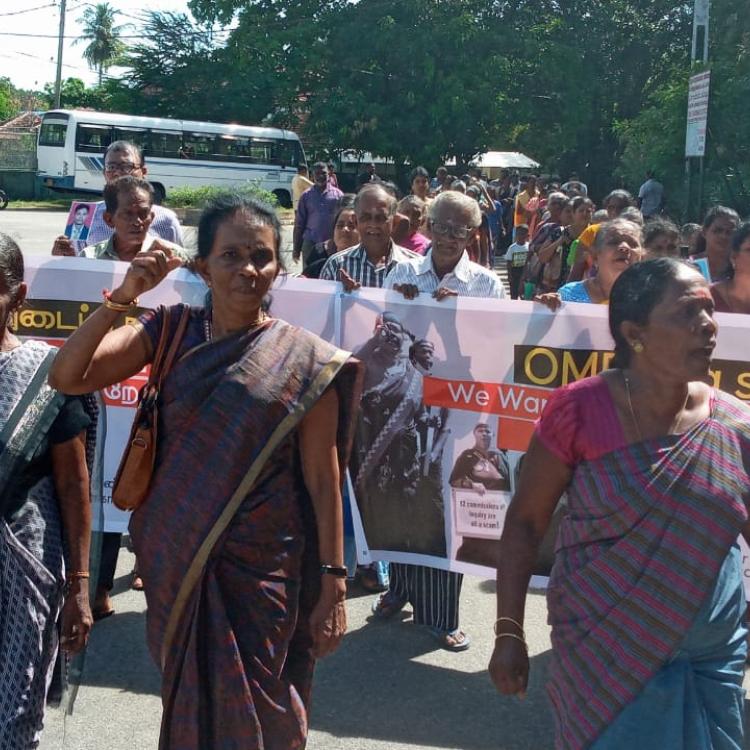
In yet another incident highlighting the Sri Lankan state’s ongoing harassment of Tamil activists, Manuel Uthayachandra, the President of the Mannar District Families of the Disappeared organization, faced an attempt by Sri Lankan police to arrest her while she was away from her home.
The Sri Lankan police arrived at her residence in Mannar and informed her family that she was to be arrested and should immediately report to the police station. At the time, Uthayachandra was in Colombo receiving medical treatment.
Upon learning about the situation, Uthayachandra later visited the police station on her return. There, she was informed that she had to either pay a fine of Rs. 100,000 or warned she may face further consequences.
Uthayachandra's 24-year-old son who was forcibly disappeared in 2008. She has been searching for him ever since.
The latest incident this week points to an ongoing pattern of harassment, intimidation, and arbitrary arrests targeting Tamil activists and human rights defenders in the North-East. Sri Lanka’s authorities, particularly its intelligence services and police, have long been persecuting Tamil activists, especially those advocating for justice for victims of enforced disappearances. The Families of the Disappeared, a group largely composed of Tamil mothers, wives, and relatives searching for their missing loved ones, has faced relentless intimidation.
Last week, Selvarani Thambirasa, the head of the Association for Enforced Disappearances (AERD) in Amparai, also came forward to reveal that she had been interrogated by Sri Lankan police. During the interrogation, Thambirasa was accused of helping to “regroup the LTTE,” an allegation that has been used repeatedly by the Sri Lankan government to silence Tamil activists.
Thambirasa, much like Uthayachandra, has been a key figure in efforts to locate victims of enforced disappearances. Her commitment to uncovering the truth has put her in the crosshairs of the Sri Lankan authorities.
Earlier this year, Human Rights Watch (HRW) raised alarms over the Sri Lankan government’s treatment of Tamil families of the disappeared. In a press release, HRW noted that the government continues to "resist any progress to address the terrible legacy of enforced disappearances, and instead compounds the anguish of victims’ families." The organization highlighted the ongoing protests by families of the disappeared across Tamil regions, where the state’s response has been intimidation and harassment rather than justice.
Meenakshi Ganguly, Deputy Asia Director at HRW, underscored the plight of these families, stating, “The relatives of the disappeared experience the daily torment of not knowing what happened to their family members, which state agencies have cruelly compounded by trying to silence them. Hundreds of mothers, wives, and others have passed away without learning what happened to their loved ones, and many more fear they might not live to see justice done.”
Despite the ongoing harassment, the Tamils have remained resolute in their campaign for justice. Since 2017, Tamil families have been continuously protesting across the North-East to uncover the truth about their loved ones.


